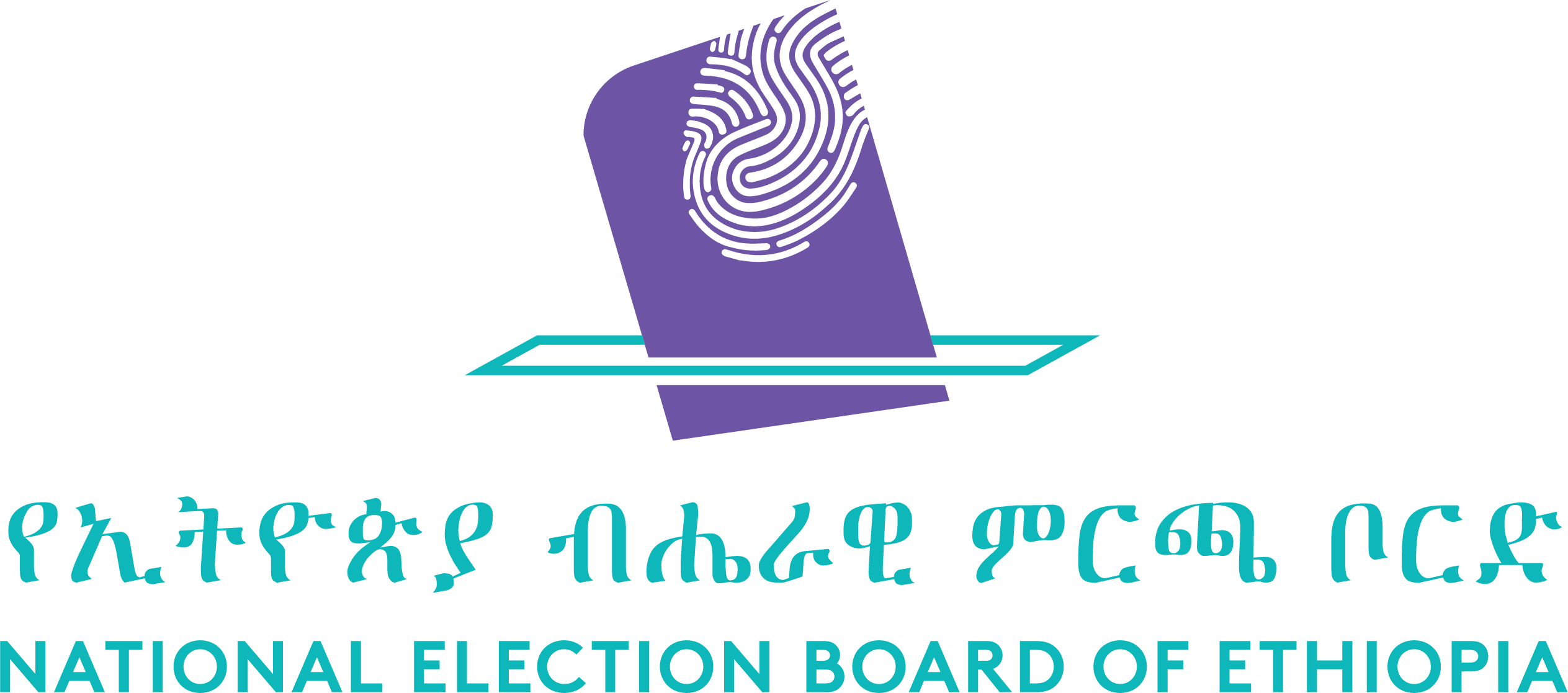Any political party in Ethiopia can only act as a political party after it has registered with the Board in accordance with Proclamation No. 1162/2019 and obtained a certificate confirming its legal personality. Despite this, any group of citizens wishing to form a political party can apply to the Board for a temporary registration permit. In accordance with Article 66 of Proclamation No. 1162/2019, any political party that receives a temporary registration license may only use the license for three months, solely to perform the duties required to register the party. However, the temporary permit may be extended for an additional three months if the applicants present a good reason.
Applying to register as a party
Registration application for any political party
- Must be signed and presented by the leader of the political party
- The following documents must be
- Full name and abbreviation of party name
- The logo of the party
- The goals and purpose of the party
- Any assets belonging to the party and the party’s source of income
- The foundation date and year of the party
- Address of the party headquarters and branch offices
- How the memorandum of association or bylaw of the party is set up
- The foundation article of the party approved by the founding general assembly
- Program
- A political program approved by the party’s general assembly that represents the party’s core values and goals
- Memorandum of Association
- Membership reception and farewell status
- Rights and obligations of party members
- The different bodies/members of the political party, the system for their selection, their term of service and their professional responsibilities
- The type and distribution of membership contributions and their involvement in the work of the party
- The party’s system for meeting and decision-making
- Disciplinary actions that can be taken against its members
- In accordance with Proclamation 1162/2019, a statute that ensures the number of members in the General Assembly should be at least 5% (50%?) of the minimum number of founding members that have set out to form a party.
- A statute indicating that the general assembly must be held at least once every year
- The structure and hierarchy of the party, including the structure and operation of the party’s branch offices
- The list of matters that require the decision of the party’s general assembly
- The procedural steps, by which the political party can merge, collaborate, or form a front with other parties, as well as the procedural steps for decision-making and implementation regarding the party’s dissolution.
- The system by which party members can become candidates for national and regional elections
- The human resources and finance and audit systems of the political party
- The party's financial and asset management system, its revenue generating system, and a statute specifying the statute or body that has the authority to decide on these matters
- The internal dispute resolution system of the political party
- A statute clarifying that every political party member has an equal vote
- A member of a political party that has not lost any of the rights guaranteed by his citizenship and does not neglect his responsibilities
- A statute stating that the election of party leaders and officers at all levels will be conducted through an anonymous vote, in a transparent, free, and fair manner.
- All political party members at management levels must have a gender-sensitive approach and attitude
- In the memorandum of association, include a provision detailing the system for calling meetings, approving and amending the program and bylaws.
- The existence of leadership bodies that direct, decide, and execute political activities as determined by the bylaws.
- A party’s bylaws must specify the relationship and hierarchy between its different branches at the national, regional and sub-regional levels.
- The signature and address of political party officials at the management level, and a document signed by all the high-level officials proving their agreement to work together responsibly.
- Document signed by the founders of the political party to be publicly disclosed
- Document stating that the officers of the political party were elected in a free and democratic manner in accordance with the party’s bylaws
- Submit five copies of registration documents in conjunction with the registration application
- Submit a receipt evidencing payment of the registration fee in conjunction with the registration application
Political parties cannot register:
- If the name, abbreviation, logo, or badge of the party is unacceptable in accordance with the culture and values country
- If the name, abbreviation, logo, or symbol is owned by another party or is misleadingly similar to that of any other party,
- If the name, abbreviation, logo, symbol, founding document, or bylaw of the party emphasizes differences based on ethnicity, religion and the like, with the intent to sow division among citizens so as to create war and violence; and if the party discriminates individuals from membership or sponsorship based on ethnicity, religion, or identity
- If the party is striving to fulfill its goals through the use of arms and violence
- If foreigners are members of the political organization
- If it is a political organization is established to carry out an illegal purpose
An organization or association that cannot register as a political party
- Associations or organizations established to conduct business and industry activities in accordance with trade law, civil law, or other applicable laws.
- Non-profit organizations and charities
- Mass media organizations and trade unions
- Relief organizations
- Religious organizations
- Social institutions such as Eder and Ekub
Refer to. Proclamation 1162/2019, paragraphs 66 to 70 for details
